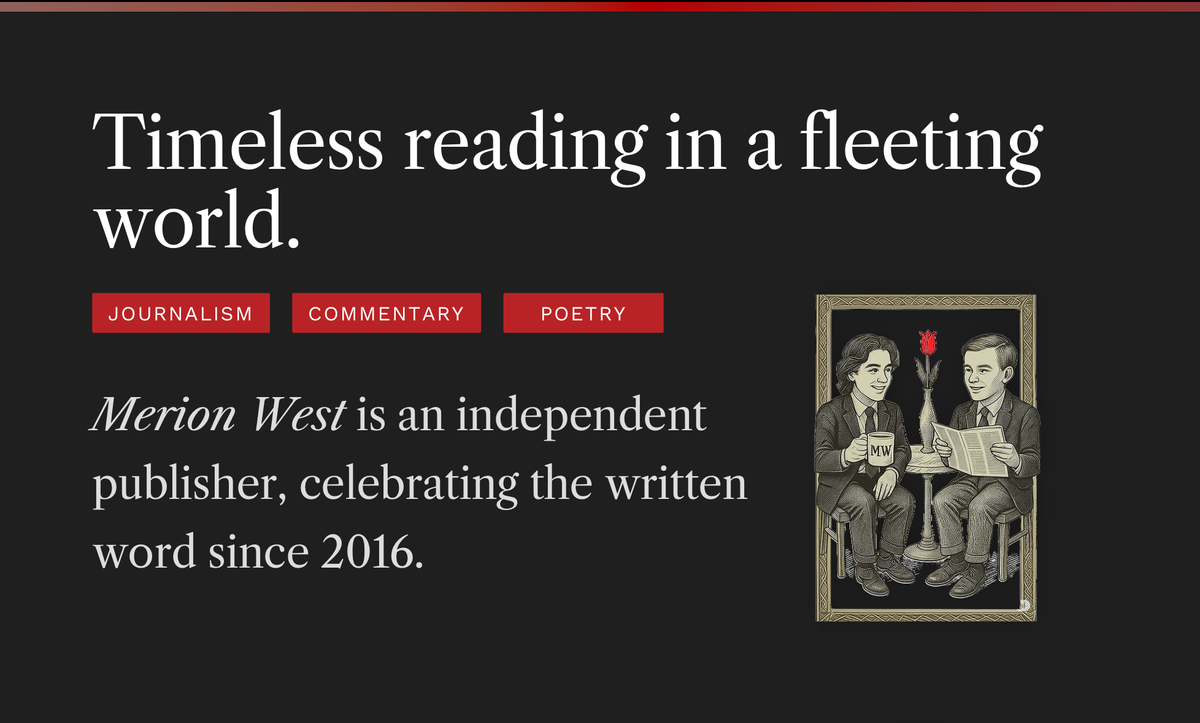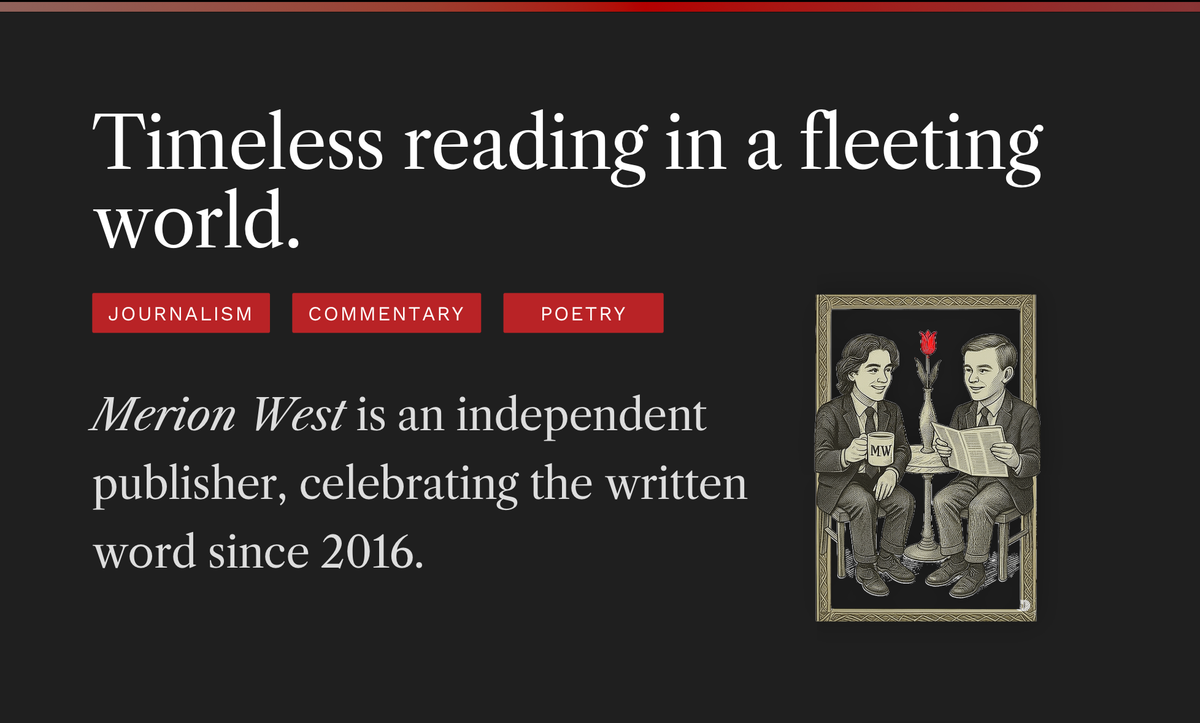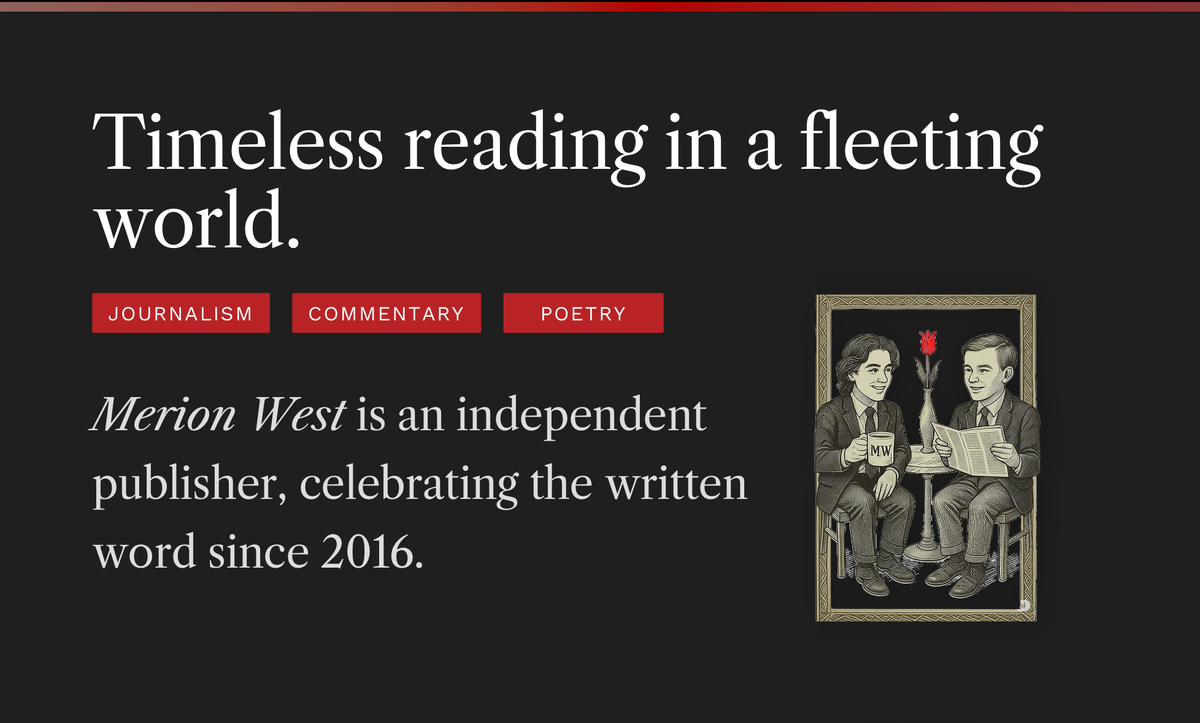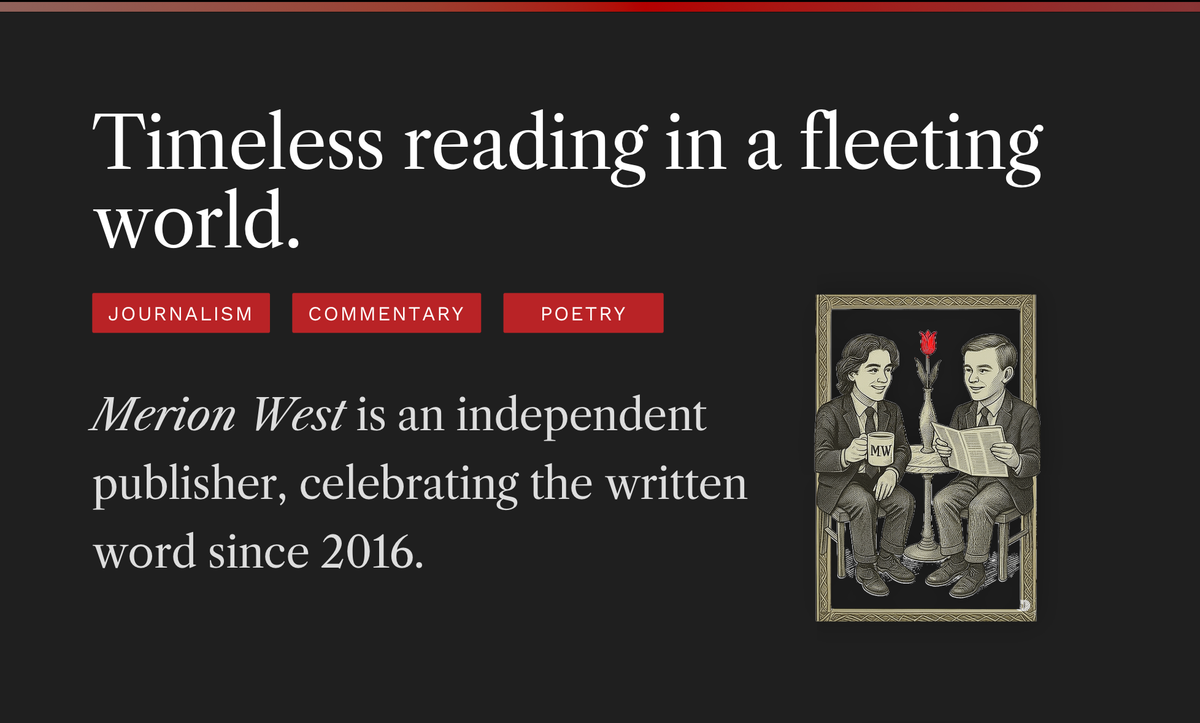COLLECTION IV
Published February 3, 2026
Dear Readers and Old Friends,
We are very pleased to release our first Collection of 2026. In the year ahead, we plan to continue offering our readers essays, interviews, and poetry that, as we like to say to one another within Merion West, make the timely timeless and the timeless timely. We will continue to focus on differentiating broad-brush claims, typically of a politicized nature, from the actual policy specifics. The state of healthcare and medical research will increasingly become a priority of coverage for us in the coming months, as well as the ever-important issue of education.
On the subject of education, Collection IV contains a thoughtful essay by education policy expert Bruno Manno on the reality that though graduation rates are increasing, the number of adults struggling to read fluidly is higher than ever. Former education professor Karen M. Prince also pleads with us to watch our language, particularly around children, and former journalism professor Robert Jensen notes that teaching is inherently political, so acknowledging bias rather than obscuring it is the wiser course.
Given the degree to which artificial intelligence, as we all know, is becoming ever more central to our lives, this Collection contains two pieces on the subject, including our feature piece "Are We Ready to Be Governed by Artificial Intelligence?" As the essay's authors, two artificial intelligence scholars from Harvard, assert, either chillingly or excitedly depending on one's perspective, we are already being very much governed by the new technology, whether we are aware of it or not.
Editor-in-chief Erich Prince's recent travels in Africa have reminded him that despite the continent being home to one and a half billion people (making it the second most populous continent), too few Americans are aware of key happenings there. As such, this Collection features two important pieces, one from each side of the continent. Tom McDonough masterfully tells us that the situation in Nigeria is far more complex than the headlines about the persecution of Christians may imply, and Kenyan teacher Tony Njoroge pleads for his countrymen to tone down their prejudice against gay and lesbian people.
Finally, in addition to our typical offerings of poetry in the Arts Section, at our latest editors' meeting, we have decided to begin accepting fiction submissions.
As always, thank you for your most kind readership and patronage of our magazine.
With gratitude,

EDITOR & PUBLISHER

Are We Ready to Be Governed by Artificial Intelligence?
Technologists Bruce Schneier and Nathan Sanders explore how Artificial Intelligence (AI) is already shaping the executive, judicial, and legislative branches, showing that we are already, at least in part, governed by AI—with more likely to come.Interviews
☩ Wilfred McClay: The Civilizational Role of the Bible in the American Founding
☩ Reflection: My Interview of Ayaan Hirsi Ali
Essays
Education
How the High School Diploma Can Restore Its Credibility
Despite soaring education costs, literacy among young people is declining. Education expert Bruno V. Manno explains how diplomas became detached from actual skills while offering a practical blueprint—informed by encouraging stories from across the country—for reversing the decline.

Teaching Students to Think for Themselves Is Never Apolitical
Journalism professor Robert Jensen considers how educators should handle contentious politics in the classroom, from the Iraq War to more recent American actions in Venezuela. He argues that honest disclosure of one’s interpretive framework is essential to teaching students to think critically.

Foreign Affairs
Nigeria Needs to Heal Itself, but the United States Can Help
Tom McDonough, who has spent considerable time in Nigeria, contends that the country’s problems go beyond the headlines regarding the persecution of Christians. Rather than American bombs, Nigeria needs American guidance on political reform.

A Life Made Unlivable: Prejudice Takes on a New Meaning in Africa
The West has long abandoned draconian measures to enforce morality, guided by the belief that every individual—sinner and saint alike—has dignity. In this personal story, Tony Njoroge reminds us of the consequences of twisting moral concern into hatred, a cost still borne in parts of Africa.

Poetry
- With Every Classmate I’ve Lost, I Feel like I’ve Failed a Test
- Here to There
- Mi Vida Loca (My Crazy Life)
- The Poet as Thief
Explore other poems in the Poetry section
◂ Read the previous Collection





